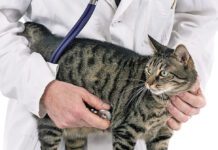Adoption Fees and Successful Placements in Animal Shelters Some involved with animal welfare are critical of free adoptions of adult cats, believing it devalues the cat in the adopters eyes, or it may attract adopters who are unable to fulfill the financial responsibilities of cat ownership. Advocates believe waiving the fee for adult cats will enhance rates of adoptions, and provide opportunities to educate owners who may otherwise adopt from neighbors or may respond to “free to good home” ads. A study in the Journal of Applied Animal Welfare Science (October 2009) examined the attachment of adopters to their cats in relation to payment or fee waiver for adoption. One hundred seventy-three adopters from a rescue facility in Maine participated in the study, of which 95 paid no adoption fee for their adult cat, and 78 paid a $75 adoption fee. Whether or not an adopter paid the fee was a function of when the shelter was running promotional campaigns for adoptions by offering fee waivers. Using an attachment scale consisting of a series of statements that the adopters would indicate agreement or disagreement (1-strongly disagree, 4-strongly agree), pet attachment was rated. Statistical analysis of the results showed no significant difference in the two groups attachment to their adopted cat. The authors conclude “implementing a free adult cat adoption program in shelters around the country could dramatically affect the lives of thousands of shelter cats who otherwise either would reside in the shelter for months awaiting adoption or be euthanized. The ultimate goal of shelters is to adopt their animals into loving homes with families who are committed to the success of their pet. The free adult cat adoption program may accomplish these goals, and shelters can feel confident in implementing the program.” Feline Casualities in Oregon of Swine Flu Two cats have died of swine flu in Oregon, leading veterinarians to investigate why the disease has become a threat to a household pet. According to Emilio DeBess, the state public health veterinarian, said that the cat died in early December 2009 on the Oregon coast after catching the H1N1 virus from its owner. Another cat died from the virus early in November in the town of Lebanon after a child in the household got sick with swine flu. DeBess is working with veterinary researchers at Oregon State University to determine why cats might be susceptible to the virus. Various diseases in animals have long been a threat to humans, such as rabies, or the West Nile virus. But with swine flu, the disease is going the other way, from humans to an animal – which is rare.



